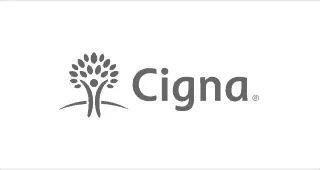What Are Benzodiazepines?
Benzodiazepines, also known as benzos, are a class of pharmaceuticals that are commonly prescribed for seizures, insomnia, or anxiety. They are considered to be the most widely prescribed depressants in the United States. The negative side of benzodiazepines is that they are extremely addictive and difficult to stop dependence.
The original agenda for benzodiazepines were to replace barbiturates, which are another class of drugs intended to treat seizures and anxiety disorders. Barbiturate abuse has grown into a huge societal problem because doctors thought benzos would offer a similar relief with a lower potential to actual abuse. However, doctors found that addiction and dependence on benzos can develop among individuals who are following their doctor’s instructions.
Prescription Benzodiazepines
Research has suggested that benzos can be effective for a few weeks at low doses. There has been no evidence to date that confirms that these medications will work for anxiety over a long period. Despite all the recent information discovered, doctors still prescribe these medications for months, years, and decades.
Regardless of the growing concerns relating to benzo complications and use, the prescriptions still spiked about 6.7% between 1996 and 2013, from 8.1 million to 13.5 million. Benzos have been classified as controlled substances by the US Drug Enforcement Administration. It’s essential to keep in mind all of these kinds of drugs have the potential for abuse.
Benzodiazepines are the most misused often, according to SAMSHA, along with being used in conjunction with the following:
When the above-mentioned drugs are used together, the overall effect of substances is enhanced. Approximately, one in eight US adults, which rounds up to 30 million, used benzodiazepines in 2018. From that study, five million of the same individuals reported misuse.
What Are the Different Types of Benzodiazepines?
The benzodiazepine class of drugs includes various concepts. All benzos have the potential to affect the same neurochemical pathways, but they work differently depending on the method. Some benzos are more suited for treating short-term anxiety disorder and panic attacks, while others are more suited for treating insomnia.
Other benzos can help individuals with alleviating their halt seizures or depression symptoms. benzodiazepines also differ in the following areas:
- Their tendency to build up and remain in an individual’s body
- How quickly they take effect
- How long do the effects last
- How potent they are
Valium
Other benzos can help individuals with alleviating their halt seizures or depression symptoms. benzodiazepines also differ in the following areas:
Xanax
Xanax, also known as alprazolam, is the most commonly prescribed benzodiazepine, is prescribed for treating panic disorders and anxiety. This medication comes in various strengths. Xanax is considered to be especially dangerous, because it works instantly, inducing serious changes all at once.
Klonopin
Klonopin, also known as clonazepam, is used to treat the following conditions:
- Social phobias
- Panic disorders
- Anxiety disorders
- Seizure disorders
- Mania
- PTSD
It comes in two levels of strength and is more sedating than Xanax. Klonopin is considered to be a drug of intermediate-acting benzo, according to the European Monitoring Centre for Drugs and Drug Addiction (EMCDDA).
Ativan
Ativan, also known as lorazepam, treats panic disorders. It comes in liquid and pill forms which can be taken intravenously. This drug has a short-to-intermediate effect, producing a huge, “rewarding” rush in many individuals.
Halcion
Halcion, also known as triazolam, is widely prescribed to treat the following conditions:
- Suicidal behavior
- Schizophrenia
- Aggression
- Insomnia
- Tourette’s
- Anxiety
It comes in tablets. Some doctors prescribe Halcion to ease anxiety before medical procedures. It induces feelings similar to alcohol intoxication and generally takes effect more quickly than the majority of the other benzos.
Ambien
Ambien, also known as zolpidem is a hypnotic drug used to treat insomnia. The sedative effect induces sleep while added ingredients can assist individuals to forget what occurs while they are sleeping. This drug is not abused as much as the other benzos.
Although this drug acts quickly, many individuals aren’t able to stay awake long enough to take more than one dose.
Librium
Librium, also known as chlordiazepoxide, is a psychotropic medication used to treat the following conditions:
- Irritable bowel syndrome
- Seizures
- Insomnia
- Anxiety
It comes in capsules of differing strengths. However, the contents of the capsule are often mixed with water or snorted. Librium is taken intravenously.
Restoril
Restoril, also known as temazepam, is another hypnotic medication that can slow down the electrical activity in the brain. Taking this drug makes individuals sleep in just a moment. However, these same people tend to engage in activities such as cooking, driving, or having sex in an extremely sedated state. This occurs without the person being able to recall their actions upon awakening.
How Do Benzodiazepines Affect the Body?
Though it’s true benzodiazepines affect an individual’s body, scientists aren’t 100% certain of the full mechanisms of how they fully work. However, they typically agree that these medications interact with gamma-aminobutyric acid (GABA), which is a neurotransmitter. Neurotransmitters are chemicals that interact with neurons in the spinal cord and brain.
GABA acts as an inhibitory neurotransmitter and impedes overall brain activity. When this process occurs, individuals begin to feel sleepy and relaxed. The majority of conditions that benzos treat, such as seizures and anxiety, are thought to be triggered by neurons’ rapid activity. As a consequence, these drugs provide a sedative effect to ease symptoms.
Short-Term Effects
When an individual engages in short-term use of low to moderate doses, the following effects might be induced.
- Impaired motor function
- Respiratory depression
- Vision problems
- Slurred speech
- Drowsiness
- Depression
- Tremors
- Nausea
- Vertigov
Long-Term Effects
When an individual engages in higher doses of benzos, it can lead to erratic behavior and thinking an overall euphoric state, and slowing of reflexes. The above-mentioned effects sharpen the appetite for abuse. A misuse of benzos can produce bothersome side effects:
- Heightened risk of falls, especially among the elderly
- Judgment and memory impairment
- Greater risk of Alzheimer’s disease
- Menstrual problems in women
- Confusion or disorientation
- Physical weakness
- Changes in libido
- Severe itching
- Jaundice
Another phenomenon that emerges from benzo use might include anterograde amnesia, which is the inability to recall events that occurred after consuming the drug. Paradoxical disinhibition can also transpire, marked by violent or antisocial tendencies.
Can Benzos Cause Psychosis or Anxiety?
Benzodiazepine-induced psychosis is indeed possible if the substance is consumed by being mixed with other substances or taken in large amounts. Since benzos do affect neurotransmitters, large doses can cause visual distortions in a person. These visual distortions have the potential to progress into hallucinations.
In a few cases, benzodiazepines can indirectly worsen psychiatric symptoms such as:
- Irritability
- Psychosis
- Anxiety
- Mood
Studies have suggested that this is an effect of the substance worsening an individual’s sleep quality. Long-term benzo use might have a similar impact as long-term alcohol use. Nonetheless, prolonged use might worsen or even cause some of the following situations:
- Similar mental health issues
- Sleep disorders
- Depression
- Anxiety
- Mania
What Are Signs and Symptoms of Addiction and Withdrawal for Benzos?
If you are trying to recognize signs of benzo use in a loved one, here are a few signs that benzo addiction treatment is needed. Looking for rehab for benzodiazepine addiction? We can help you should you develop any of the signs listed below.
- Unsuccessful and repeated attempts to cut back and eliminate drug consumption
- Using benzos while driving, at work, or various other hazardous situations
- Intentional benzodiazepine use with alcohol or other drugs
- Foregoing previously enjoyed activities to engage in drugs
- Frequently using benzos or thinking about obtaining benzos
- Denial despite other signs of addiction
- Ignoring responsibilities due to drug use
- Doctor shopping to get more benzos
- Taking more than prescribed
When an individual needs rehab for benzodiazepine addiction, it often leads to alarming consequences for users and their families. This is why it’s so crucial that benzo addiction treatment is sought upon the first signs of benzo use. The family problems that typically occur include divorce or child neglect.
Financial challenges can ascend due to the following:
- Mismanagement of money
- Job absenteeism
- Loss
Too often, many individuals resort to criminal behavior to support their benzo addiction lifestyle. Once the first signs of benzo use begin, rehab for benzodiazepine addiction needs to be arranged. Benzo detox recovery is possible with benzodiazepine addiction treatment, especially during the early stages of dependence.
What Does the Withdrawal Timeline Look Like?
The benzodiazepine withdrawal timeline normally reaches its peak within 36 to 72 hours and typically declines significantly after five days. There are a variety of different symptoms that benzo withdrawal includes. The potential symptoms of benzo withdrawal are the following:
- Nausea and/or vomiting
- Increased heart rate
- Trouble sleeping
- Hallucinations
- Sweating
- Seizures
- Agitation
- Anxiety
Freedom From Benzo Addiction Awaits at Achieve
If you or someone you love is seeking out rehab for benzodiazepine addiction, Achieve Wellness and Recovery Center is here to help. Contact us today to get started on your path to freedom from substance dependence.
We work with most insurance companies. Please note we are not affiliated with or endorsed by insurance companies.
No Medicaid Accepted.


















